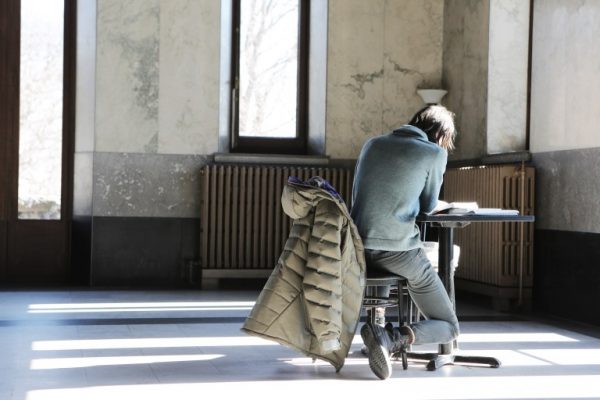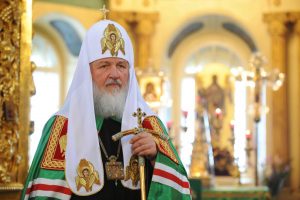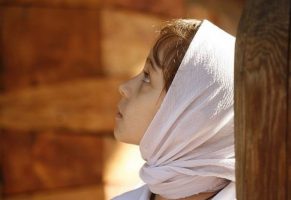Will our children choose to live as Orthodox Christians?
This is the most pressing question facing the Church today.
Over the years, the conventional path followed to form young people in the Orthodox Faith has included a Sunday school program. Today, it is a given that every parish needs a Sunday school in order to be considered successful. However, as more and more parishes face serious questions about their future, one must ask whether or not Sunday school has served our children well.
The answer to this question goes well beyond money. It should be noted that at no time in history has the Church in America devoted more resources to the education of its youth. A look at available budget data from the Greek Orthodox Archdiocese of America shows that national spending on education for the period of 2005-2016 will top $8,200,000. Combine that figure with expenditures on youth ministry and family ministry and that figure balloons to an incredible $17,600,000. Given these figures, you would think that our youth are thriving in the faith. However, this is hardly the case. Recent studies show that 60% of Orthodox college students leave the faith while 50% of Orthodox student leader see no value in attending church regularly. Meanwhile, as many as 85% of marriages are now of the interfaith variety, with one spouse choosing not to be Orthodox. The reality confronting the Church today is that a family that is united in living the Orthodox faith is far more the exception than the norm. For many youth, Orthodoxy has become just another cafeteria-like choice between one parent’s church or the other parent’s church.
The greatest tragedy in the American Church today is that far too many parishes have alienated our youth by placing nostalgia before witness to Jesus Christ. Nostalgia can only sustain parishes for so long before demographic collapse sets in. As Orthodoxy comes to grips with this reality, it is evident that Sunday school programs have failed to provide the fundamentals needed to pass on the Orthodox Faith to a new generation. Despite the presence of dedicated volunteers and the best of intentions, change is needed.
Should parishes in America reconsider their Sunday school programs or eliminate them all together?
The answer to this question is a clear and resounding YES!
Today, many parishes have Sunday school programs that undermine the liturgical life of the Church and the unity of the family. The central message of Sunday school today is one of segregation, not integration. Parishes separate children from their families and place them in a classroom so as to teach them facts about the Church. This stunts their ability to experience the Church in all its depth and beauty. It also divides families at a time when they should be together the most – the Divine Liturgy. Sophie Koulomzin points this out clearly in Our Church and Our Children. “..the Sunday school movement proved to carry certain dangers within it…..The Sunday school replaced the Divine Liturgy, the classroom lesson replaced the Sacrament. Students graduating from Sunday school had not acquired the habit of going to church on Sundays. The life of worship, which is the essence of Orthodoxy, was thus undermined.”
What are some of the signs Sunday school may be undermining the life of worship in a parish? Consider the following:
- Students show up late for Divine Liturgy, resulting in little actual time at worship before leaving for class after communion.
- Teachers are often late to Divine Liturgy as well and sometimes even skip liturgy to teach Sunday school.
- Events like ethnic dancing and diocesan basketball tournaments take priority over the worship and witness of the Church.
- Rehearsals and planning for seasonal events like the parish Christmas pageant are held during Divine Liturgy.
- Graduating students lack the habit of attending Church regularly.
- Challenging social and moral questions are avoided for fear of offending people.
- Secular success is celebrated more than Christian witness. Service to the weak and vulnerable is discouraged as vocation or career.
- Teachers frown upon fidelity to the teachings of the Church. Zeal for Orthodoxy is viewed as strange.
There is no question that the above problems exist in a wide variety of parishes across America. If our children are going to choose to live as Orthodox Christians in the years to come, then they certainly deserve to encounter the Church in its fullness, much like the early disciples did. Orthodoxy is not simply classroom knowledge or ritual knowledge. Understanding the faith is not the equivalent of learning answers to trivia questions. The Church is a way of being that shows us how to be truly human. This cannot be learned in a classroom. It cannot be gleaned from a textbook. And it certainly cannot be passed on through an educational bureaucracy created by paid professionals. Orthodoxy is learned when it is experienced both at Liturgy and through the lives of others who witness to Jesus Christ with humility, compassion, and devotion.
Now that the crisis in Orthodox Sunday schools has been brought forward, here are three ways we can improve the quality of learning in parishes.
English is Essential: The complete use of English is essential for a healthy Church life in America. Studies conducted by the Assembly of Bishops in the Unites States show that the use of English in the liturgy increases attendance and participation at liturgy by as much as 30%. Being able to understand the liturgy matters, especially for young people, converts, and mixed marriages. It is foolish to think we can pass on the experience of the life of the Church to our children if they constantly cannot understand the liturgy because it is in Greek or Ukrainian. A vibrant liturgical life in English is essential in helping our children grow into mature witnesses to the Faith who have a strong understanding of how the Church answers the questions proposed by life. Consistently participating in and understanding the Divine Liturgy is far more enriching than any number of classroom lessons.
More Mentoring: Orthodox Christians have mentored one another since the earliest of times. St. Paul’s letters are a testimony to such work. Every Orthodox Christian needs a mentor, and every parish needs a mentoring program where healthy Orthodox Christians take up the responsibility of mentoring young people and new arrivals. The best way to learn the fundamentals of Orthodox Christianity is to see it lived with joy by others. Imagine if all of the resources spent on Sunday school were dedicated to mentoring programs that formed relationships across generations that helped people grow in hospitality, humility, and service to the weakest among us. Nostalgia-centered parishes would have a very different feel than they do today.
Servant Leadership: Nothing undermines the Christian development of our youth more than leaders who do not live the Gospel. Love of power, wealth, and social status are all problems facing the Church. These problems must be overcome by ensuring that all leaders are first and foremost servant leaders who understand that real power in the Church comes from humility and service, not wealth or family legacy. Leadership begins at Liturgy, and Orthodox leaders educate our youth best when they model servant leadership both at Liturgy and outside our Liturgy. A servant role model provides a lifetime of lessons for a young person. These lessons are far more effective at communicating the Faith than any textbook.
Confronting the Sunday school crisis in Orthodox parishes today is no easy task. No doubt much emotion is tied to this issue. However, to ignore the need to change is to risk having our youth live – according to the warning of St. Justin Popovich – “as fireflies in a universe of darkness.” America’s Orthodox youth deserve better than such an impoverished existence.
Living as an Orthodox Christian is not something we inherit through our genes. Orthodox Christianity is a deliberate choice that must be affirmed time and again. It must renewed day after day. Therefore, the Church must not educate young people based on presupposing the Orthodox Faith. The Church must constantly refresh itself and propose the Orthodox Faith time after time. In this way, it can truly live the vision of St. John Chrysostom, who wrote, “With Christians everything should be secondary compared to our concern with children, and their upbringing in the instruction and teaching of the Lord.”
Our youth are not only part of the Church of the future; they are more importantly part of the Church of today!
This Post was originally published by the Orthodox Christian Network (www.myocn.net)




















